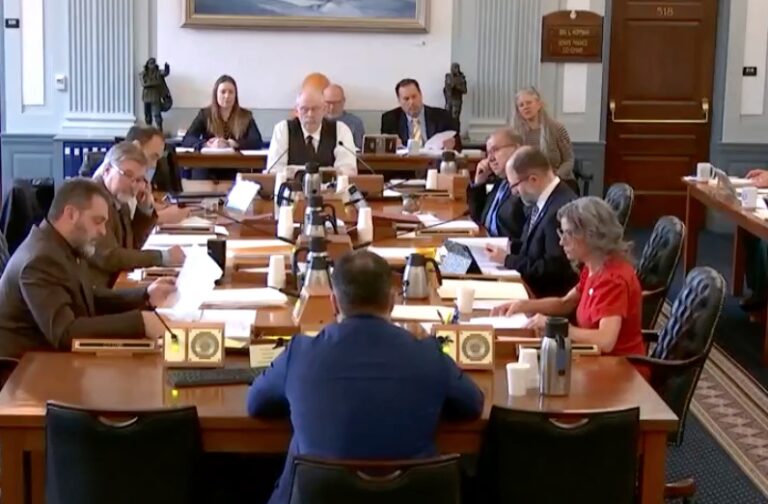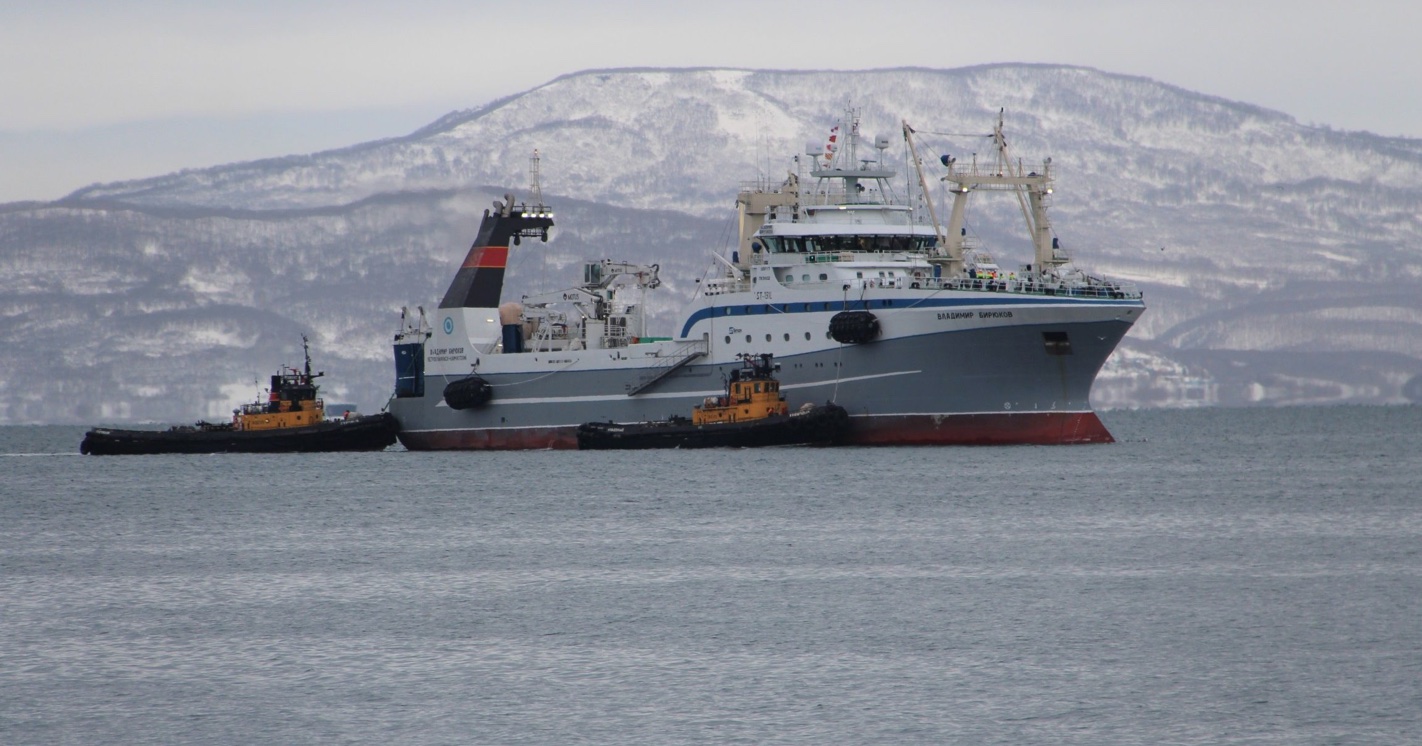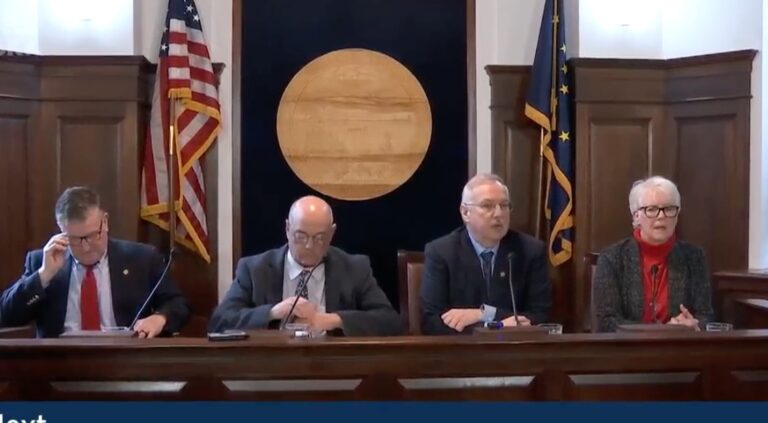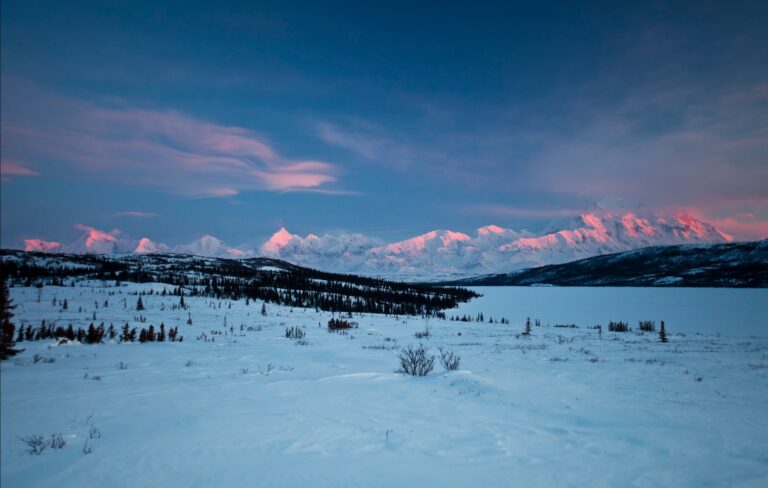By ROBERT SEITZ
A month ago Sen. Gray-Jackson introduced SB 120 “An act establishing the Alaska Climate Change Emergency Response Commission.”
In this bill is stated “The legislature finds that a state of emergency exists because of the threat climate change poses on communities in the state, the state economy, traditional ways of life, fish and game populations, and natural ecosystems.
I contend that it must first be determined that there is indeed a “Climate Crisis.”
Greenhouse gas emissions are not responsible for much warming at all. If you spend some time actually considering our weather it will become clear that we are not warmer because CO2 and Methane are trapping heat in the atmosphere, but you will notice the jet stream is moving around a lot and high temperature days will occur in the summer where the high pressure areas persist.
My commentary May 31, 2024 “Climate, politics, and energy in Alaska” covered that Alaska is NOT warming at two to four times faster than the rest of the world. I brought out that the comparisons are made with average annual temperatures which have high values when compared with the average over long period of time.
If you look at the data, you will find that while the comparison of average annual temperature reveal larger values for recent times, but you will also note that the high temperatures (summer temperatures) are not much different than they have been for a long time. It is a climate crisis sleight of hand, because the real change is not greater heat, but a lot less extreme cold.
We have had Chinooks in Alaska for much longer than I have lived here. This year when the Arctic Express sent lots of cold air, and snow, to Florida and Louisiana, that air was replaced by warm wet North Pacific air that was sucked into the space above Alaska. The jet stream affects Alaska much more than do greenhouse gases.
If you have been paying attention to the Arctic sea ice extent this year you know that it is being touted as the lowest maximum extent value ever on March 22. If, however, you look at the sea ice around Alaska (e.g. the Beaufort, Chukchi and Bering Seas) it has been recovering quite well. While we don’t have the multiyear ice and the thickness of ice we used to have in the Beaufort sea, the sea ice presence has been reliable for most winters since 2017 as have the Chukchi and Bering Seas. The water temperatures that rose considerably when air temperatures were high during winter months in the Bering Sea last decade, have recovered and are back to normal low temperatures since the sea ice coverage returned to normal extent in 2022. The ice extent in the Bering Beaufort and Chukchi Seas are well above minimum extent so have returned some of the coastal protection from winter storms.
If we really don’t have a problem with greenhouse gas heating then we really don’t have a climate crisis and thus we do not need the Alaska Climate Change Emergency Response Commission. With a more flexible jet stream it may be that we need to be looking at flooding opportunities, and potential landslide opportunities that abundant rainfalls can exacerbate. We already know that we must pay attention to lakes that form behind receding glaciers and we need to identify the coastal areas subject to erosion during winter storms that may occur when lees open in the sea ice.
It is imperative that we recognize and accept that there was a Little Ice Age and that we have been recovering from it and must determine what kinds of changes should be expected from that. Did the extreme cold of the northern latitudes provide a stabilizing effect on the jet stream?
Without a greenhouse gas heating crisis we no longer have a hydrocarbon (fossil) fuel crisis. It is time to get back to real definitions for reliable, reliant and sustainable energy. Cook Inlet gas and North Slope gas will provide all of these for at least the near future while we work out the best alternate energy source for the Railbelt. For now, it is natural gas that we must depend on.
Sen. Bill Wielechowski filed SB 149 and Rep. Ky Holland filed HB 153 both entitled “An act relating to generation of electricity from renewable energy resources: relating to a renewable portfolio standard:…”
These bills include a noncompliance fine, which means any entity in the Railbelt electrical system is mandated to add a prescribed amount of renewable generation according to a time table and failure to do so will result in a substantial fine. This is a mandate. I have argued against mandated addition of renewables to the Railbelt for some time; I support the free will, free market approach to additional renewables to connect to the Railbelt electrical system.
Without a greenhouse gas heating crisis we also really don’t need an RPS (Renewable Portfolio Standard), but we can proceed with the development of renewable energy sources wherever they are determined to be the best energy source for the community or the location. The objective is still cheap energy source whether it is for a remote community, for remote portions of the Railbelt electrical transmission and distribution system or even a mine or a lumber camp.
We will eventually have Cook Inlet tidal-driven electrical power, geothermal energy sources from near our many volcanoes, and we will use wind and solar power where they are the best sources of energy. Alaska is different than the rest of the USA. Our winter last longer here, so if we get our energy source wrong for a location, people can die. Let’s not put our citizens at risk to depend on a source of energy that may not be there when it is needed.
On Aug. 4, 2024 my contribution “Power transition is more complicated in Alaska than many realize” in MRAK covered many of the issues which make high percentage of inverter-based resources difficult (i.e. less reliable, less reliant, less sustainable) because of the added complexity of additional controls, communications and electronic components. I want to be sure each of the utilities can interconnect a large inverter based resource with knowledge, and understanding and predictability before they have to do it.
One way to get cheaper energy is to find big industrial customers, like a mine, to reduce the financial burden that energy has on the individual customer. We need energy development and we need resource extraction to build Alaska’s revenue generating capability.
And for those who want to hinder development in the West Susitna Road area because they don’t want to be disturbed or to have their recreation comprised, please remember that that area was already mining country back in the 1920’s.
My parents grew up on mines west of Talkeetna. I grew up with “ you can’t play until the work is done.” We have an economy to rebuild in Alaska. We all need to be a part of the building, so that we have a way to keep our infrastructure in good repair. We want to be ready for whatever weather comes our way.
So it is NO on the Alaska Climate Change Emergency Response Commission and it is NO on RPS, for the best interest of Alaska.
Robert Seitz is a professional electrical engineer and lifelong concerned Alaskan.








